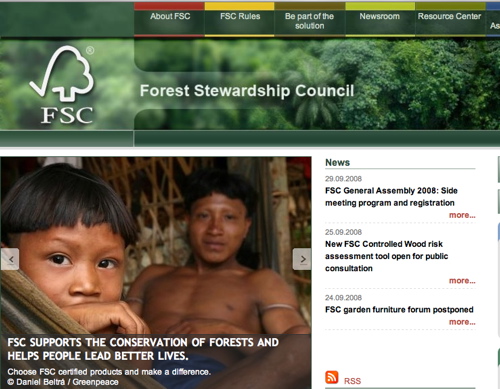 Sustainable tourism certification programs are increasingly important to safeguard tourism providers from loss of market position due to negative social and environmental impacts induced by their operations. With the plethora of certification systems and ecolabels proliferating in the tourism industry, it is difficult to distinguish the credible sustainable tourism certification programs from superficial ones.
Sustainable tourism certification programs are increasingly important to safeguard tourism providers from loss of market position due to negative social and environmental impacts induced by their operations. With the plethora of certification systems and ecolabels proliferating in the tourism industry, it is difficult to distinguish the credible sustainable tourism certification programs from superficial ones.
Among the most advantageous and credible options for sustainable tourism certification is Sustainable Travel International’s (STI’s) Sustainable Tourism Eco-certification Program (STEP). STEP is an internationally applicable sustainable tourism certification program available to hospitality providers, tourism operators, attractions, and transportation providers. STEP is the only international sustainable tourism certification program to encompass all 37 Global Sustainable Tourism Criteria (GSTC Criteria): a set of universal sustainable tourism principles recognized as the minimum standards required to achieve sustainable tourism goals, and serve as the basic building blocks to construct a credible sustainable tourism certification program. STEP’s alignment with the GSTC Criteria means that those achieving certification to its standard can ensure their sustainability efforts are aligned with universally recognized sustainable tourism principles. STEP is also the only international sustainable tourism standard that is recognized by the Global Sustainable Tourism Council (GSTC), and anticipates to be the first international sustainable tourism certification program to achieve global accreditation. The GSTC is first accreditation body for sustainable tourism that “certifies the certifiers”, and is the most superior form of credibility in sustainable tourism certification. For these reasons, STEP is globally recognized as the “gold standard” in sustainability.
Education is at the core of STEP, yielding an especially beneficial option for businesses new to sustainability. The Sustainable Tourism Education Program is a conclusive supplement to the STEP program; it is suite of online tools that facilitates businesses and destinations manage their impacts and implement sustainability solutions. STEP provides businesses with the tools to assess current operations, draft sustainability policies, establish benchmarks for environmental, social, and economic performances, identify no- and low-cost best practices, and implement a sustainability management framework distinct to their operations.
Among the central advantages of the STEP Standard is that Eco-certification is voluntary, and businesses can use the online platform to manage their sustainability efforts even if they do not intend to apply for eco-certification. Accordingly, STEP serves as an education and capacity building tool, and to those achieving eco-certification, STEP provides credibility to sustainability initiatives.
STEP fosters a systematic and incremental approach to sustainability. STEP’s incremental approach emphasizes long term, continuous improvement in sustainability performance and systematic solutions. This approach allows operators to integrate sustainable practices into all facets of their operational environments, and solidify a strong foundation for which to guide future sustainability efforts. STEP’s Systematic and incremental approach ultimately encourages businesses to draft policies, transform policies into action plans, implement action plans to create a functioning sustainability system, and continuously refine this system to generate innovative sustainability practices.
By integrating the ethos and sustainability management techniques advocated by STEP, businesses can realize various benefits including:
- employee empowerment, loyalty, and retention
- improved profitability via reduced and efficient resource consumption and employee turnover
- augmented brand image
- increased market share by capturing the growing sustainable tourism market segment
- enhanced destination appeal, visitation, and prosperity via the preservation of natural and cultural environments
- improved consumer satisfaction
- community support, and
- a competitive advantage through innovation in sustainability management techniques.
The Globus Family of Brands recently achieved Bronze Eco-certification, representing the first major tour operator to achieve STEP Eco-certification. Globus is now reaping the benefits of adopting a credible sustainable tourism standard. For example, by adopting STEP, Globus decreased water consumption by 30%, decreased paper usage by 10%, and was able to recycle 50% of their total waste. The Cliffs of Moher, one of Ireland’s leading attractions, also adopted STEP and is reaping the benefits. Among its sustainability “wins”, include (but not limited to): reduction of annual water consumption by 885,000 liters, and increased recyclables by 40% to ultimately recycle 41% of its total waste. To experience how Ireland’s number one attraction, the Guinness Storehouse, adopted the STEP Standard to guide their sustainability efforts, check out this video:
[vimeo 32059619 w=400 h=300]
Laura Lesar is a strategist at the sustainability consulting firm GBO Group, in Honolulu, HI.
Photo from Shutterstock.






